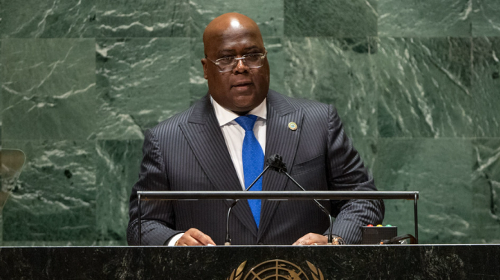DR Congo to get $225m IMF loan after first-ever high-level program

TLDR
- Democratic Republic of Congo (DRC) completes IMF loan program, receives final disbursement of $224.7 million.
- DRC's economic outlook positive but with substantial downside risks, emphasizing need for prudent policies and reform efforts.
- IMF highlights generally positive performance with most targets met, stresses importance of fiscal, monetary, and governance reforms.
The Democratic Republic of Congo (DRC), the world's second-largest copper producer, has completed an International Monetary Fund (IMF) loan program for the first time in its history, according to the lender.
The DRC's performance under the 3-year, $1.5 billion program was described as “generally positive” by the IMF, leading to a final disbursement of $224.7 million to bolster the country’s foreign reserves.
Despite the generally positive performance, which saw most quantitative targets met and key reforms implemented—albeit slowly—the economic outlook remains positive but faces substantial downside risks. The IMF emphasized the need for continued prudent policies and increased reform efforts in fiscal and monetary frameworks and governance to mitigate these risks.
Key Takeaways
The economic outlook for the DRC remains positive but faces substantial downside risks. Economic growth is projected at 4.7% in 2024 and an average of 4.8% from 2024-2028, driven by the expansion of major mines and gradual growth in non-extractive sectors. Inflation is expected to stay high, averaging 17.2% in 2024 and decreasing to 12% by December 2024, before gradually aligning with the Banque Centrale du Congo’s 7% target over the medium term. Fiscal pressures will persist, but good revenue performance and efforts to contain non-priority spending should help reduce the domestic fiscal deficit to below 1% of GDP in 2024 and beyond. Key risks include escalating armed conflicts in the East, further inflation from oil and food price volatility, a sharp slowdown in China’s growth, and intensified regional conflicts, which could impact export revenues and foreign direct investment.

Next Frontier
Stay up to date on major news and events in African markets. Delivered weekly.
Pulse54
UDeep-dives into what’s old and new in Africa’s investment landscape. Delivered twice monthly.
Events
Sign up to stay informed about our regular webinars, product launches, and exhibitions.




